A possible future for British foreign policy?
- Published
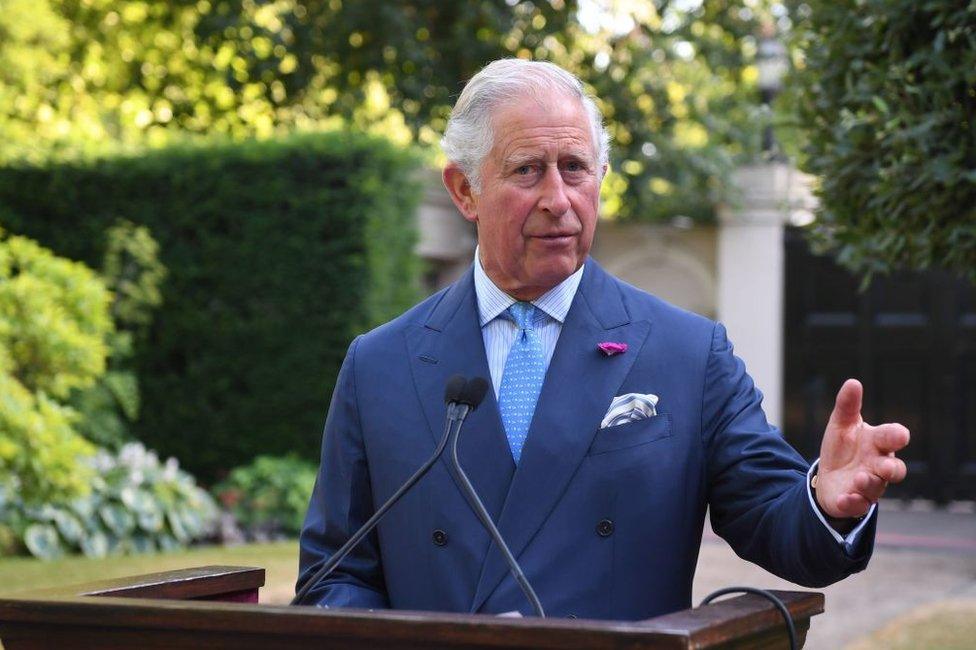
Prince Charles delivered a powerful and personal speech about the importance of reconciliation
Jeremy Hunt celebrated his appointment as secretary of state for foreign and commonwealth affairs this week. But he might not have been quite so happy to spend his first day in office hosting a summit about an issue as complex as the western Balkans. Yet, at a high level reception to mark the end of the conference, Mr Hunt was given a few pointers about how to shape British foreign policy in the coming years.
Standing in the gardens of Clarence House, glass in hand, I was just a few feet from Chancellor Angela Merkel, of Germany, and Prime Minister Alexis Tsipras, of Greece.
Lurking nearby was UK Prime Minister, Theresa May, her new foreign secretary, and a gaggle of other cabinet ministers. The Polish Prime Minister, Mateusz Morawiecki, was just behind me. And mingling in the crowd were six other prime ministers from the western Balkans with their own ministers and ambassadors.
The Prince of Wales, our host, was steadily working the garden, a quiet word here, a joke there. Officials, diplomats and a solitary journalist (me) made up the rest of the numbers. The Sun was dipping in the west, the London traffic a distant hubbub and all seemed well in the world.
I tell you this not as some shameless exercise in diplomatic name-dropping. This is the sort of event I go to - I am the diplomatic correspondent of the BBC.
No, I want to tell you about this reception, one that marked the end of the western Balkans summit in London, for what happened next.
For the Prince of Wales then stepped up to a small podium and began to give a speech. I expected the usual pleasantries and platitudes. I could not have been more wrong.
'Practical, difficult action'
For the prince delivered a short but powerful homily, external on the importance of reconciliation.
And significantly he spoke from the heart, citing his own experience following the murder of his great uncle, Lord Mountbatten, at the hands of the IRA in August 1979.
"Reconciliation is not simply a theoretical abstract concept," he said. "It is, of course, a matter of practical, difficult action, painful choices, and hard, but essential, compromise.
"Blame, distrust and hatred are natural, instinctive responses to decades, even centuries, of conflict and injustice - but they do not help us to change course. That requires the really difficult business of forgiveness, understanding and, if I may say so, tremendous courage and enlightened leadership.
"I know this because very nearly 40 years ago, my great uncle, Lord Mountbatten, was murdered in a terrible bomb attack.
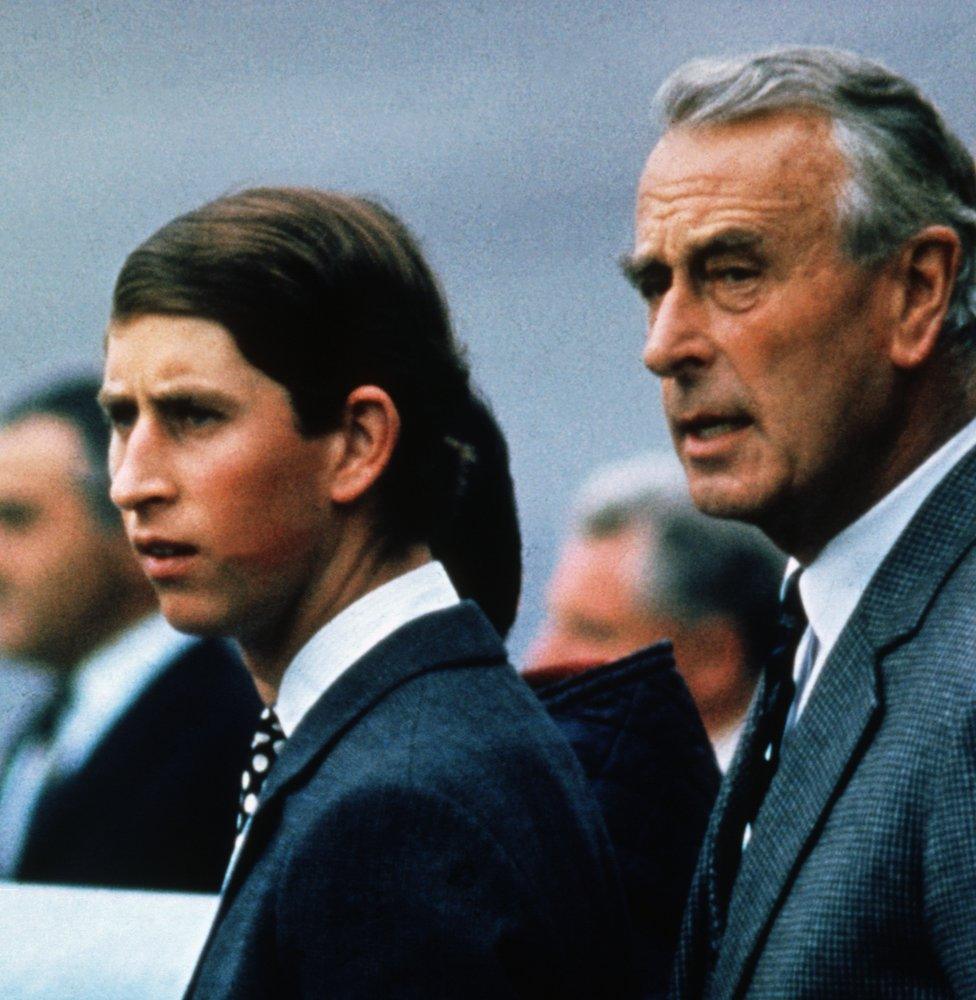
Lord Mountbatten was killed by an IRA bomb in Mullaghmore in 1979
"Ever since that fateful day, I have been determined to pursue the long, hard road to lasting reconciliation.
"We can, of course, never forget the wrongs of the past, which must always inform the choices we make about the future. But they cannot be allowed to limit our horizons or to constrain the opportunity to which future generations aspire."
He said meaningful reconciliation in the western Balkans was the only way of ensuring that the region's children did not endure the agonies of the generations before them.
"Much progress has been made in this regard over recent years," he said, "But much much more needs to be done."
'Global Britain'
He was speaking to an audience all too aware that this week marks the 23rd anniversary of the massacre of more than 8,000 Bosnian Muslims at the hands of Bosnia Serb forces in the town of Srebrenica, the worst mass killing on European soil since World War Two.
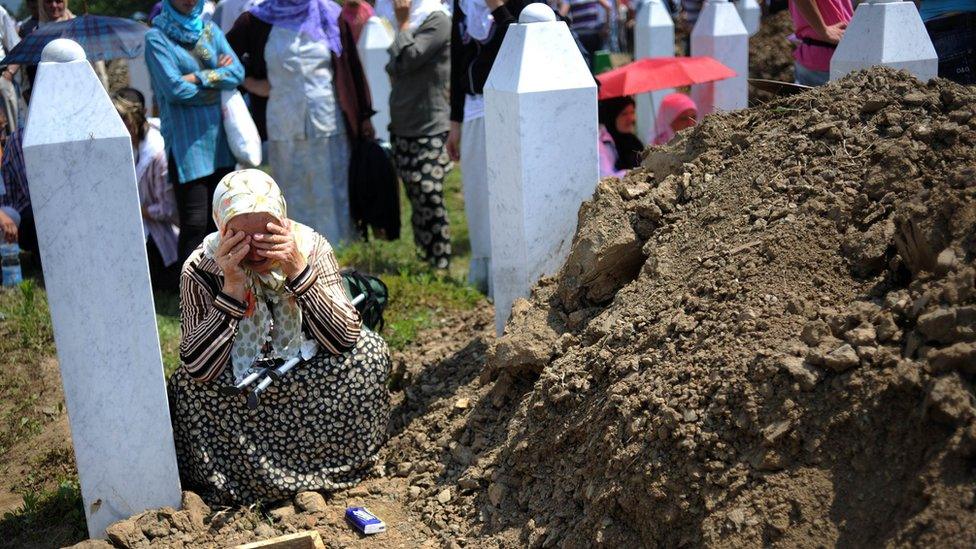
A woman sobs during a mass burial of newly identified Srebrenica victims in 2010, 15 years after the massacre
It was a powerful and effective speech.
And it struck me that perhaps here, on this lawn, as the heat of the day slowly dissipated, I had seen a small example of what British foreign policy could become after Brexit.
The government currently espouses what it calls a "global Britain" foreign policy. This was a phrase designed to convince the world that Brexit would not mean Britain withdrawing from the world.
But few claim to know what it means in practice. It has been dismissed as a slogan in pursuit of a policy.
Yet at this reception we had an example of several things that Britain can bring to the party.
First, the UK has strong convening power, the ability to bring all these leaders together.
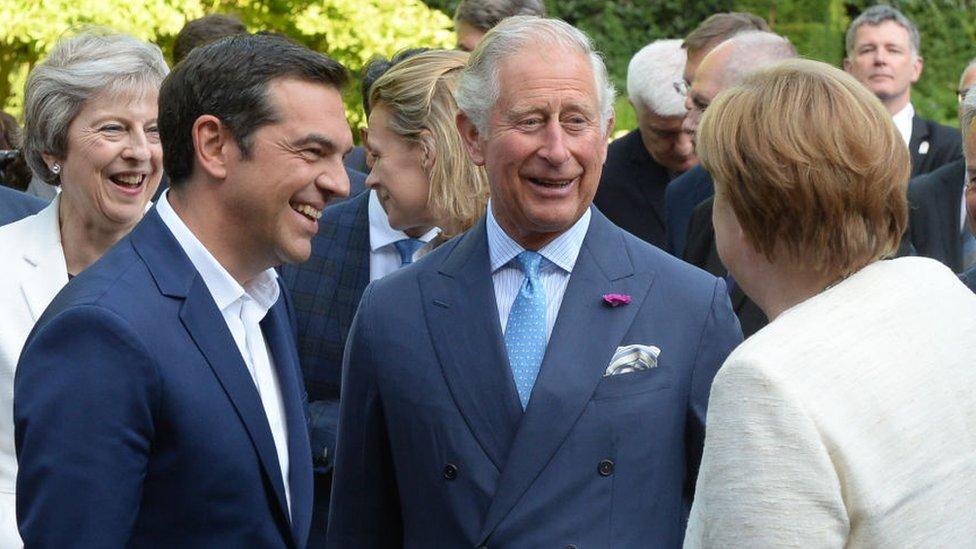
Prince Charles spoke to leaders including the Greek Prime Minister, Alexis Tsipras, and the German Chancellor, Angela Merkel
Who else but the Prince of Wales could persuade Angela Merkel's office that she should spend another hour of her day in the UK at a reception such as this? Who else could lecture a group of heads of government about reconciliation but a future monarch who had suffered personally from the violence of conflict?
There was a tough message here: the six Balkan leaders needed to do more.
Second, politicians talk breezily of British values but here, at this reception and this summit, was the UK urging six relatively new nations to embrace the value of the rule of law, the importance of justice, the prosperity that can come from stability, the advantages of multilateralism and so on.
UK national interest
We often presume these are universally acknowledged: they are not.
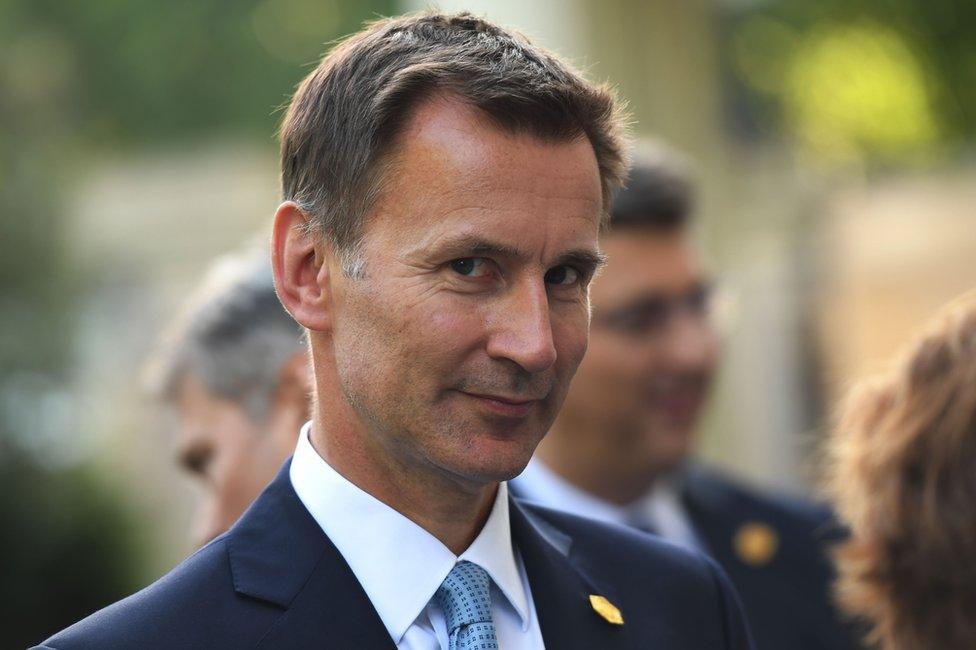
The western Balkans summit was Jeremy Hunt's first public engagement as foreign secretary
Third, this was foreign policy with real edge. Warm words and cold drinks might sound at the fluffier end of diplomacy - but it is in the direct UK national interest for the western Balkans to remain stable.
Parts of the region are riven with ethnic tension, many of the governments are weak, and corruption and organised crime is rife.
It is not just that the UK and the rest of Europe wish to prevent a repeat of the conflicts that tore this region apart in the 1990s. There is also a threat closer to home. Many of the drugs and weapons that are used on Britain's streets originate in the western Balkans.
Now, we should not overstate all this. The Prince of Wales is not about to become our de facto foreign secretary.
And if "global Britain" is to mean anything, then the government will have to provide answers to the big foreign policy questions of the age: the UK's future attitude to a politically unstable Europe, an independent-minded United States, a rising China, the challenge of global migration and Islamist terrorism and so on.
But perhaps here on this lawn, in this heady summer of sporting success and political uncertainty, there was a small cameo performance of what one day British foreign policy could become.
- Published10 July 2018
- Published10 July 2018
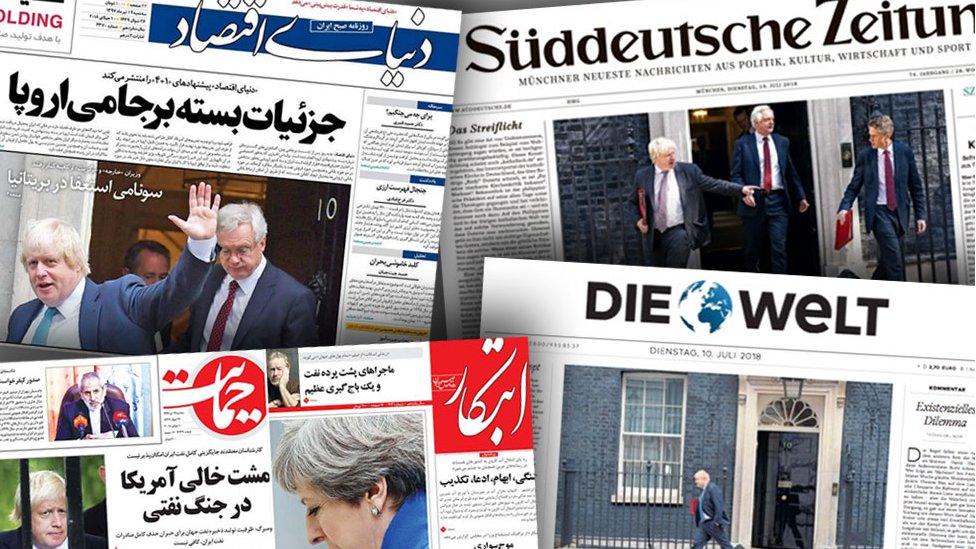
- Published9 July 2018
- Published9 July 2018
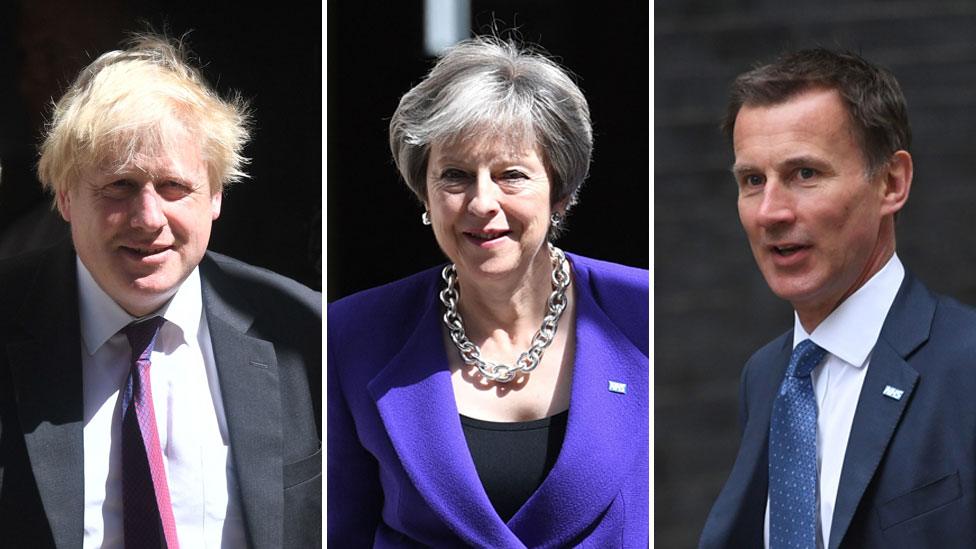
- Published30 December 2020

